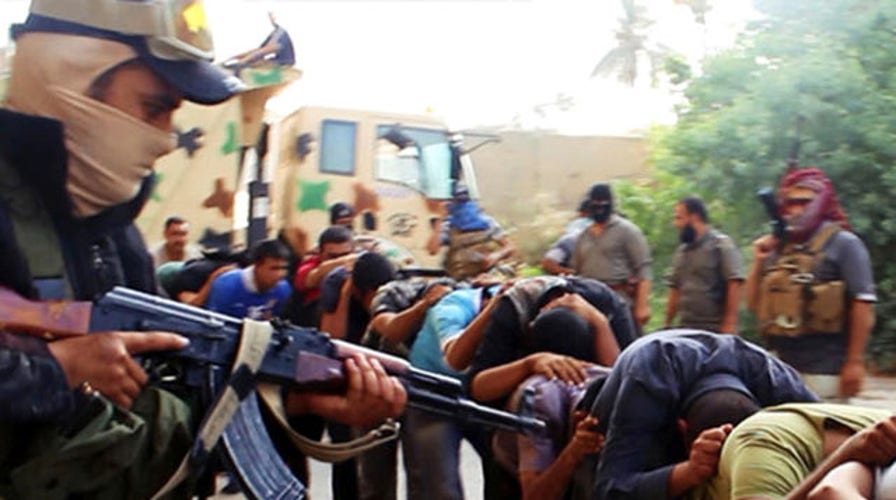Sunni militants captured a town in the northwest of Iraq Monday as the Obama administration reportedly prepared to open a dialogue with Iran on how the insurgents can be countered.
The mayor of the town of Tal Afar told the Associated Press that his town, approximately 260 miles northwest of Baghdad, was seized before dawn by fighters from the Islamic State of Iraq and the Levant (ISIS). The town has a population of some 200,000 people, mostly ethnic Shiite and Sunni Turkomen. Tal Afar residents reached by phone confirmed the town's capture and spoke on condition of anonymity, fearing for their safety.
One resident who did give his name, Hadeer al-Abadi, spoke as he prepared to leave town with his family. He said that the local security force left the town before dawn, and local tribesmen who continued to fight later surrendered to the militants.
"Residents are gripped by fear and most of them have already left the town to areas held by Kurdish security forces," al-Abadi said.
The ethnic mix of Tal Afar raises the grim specter of large-scale atrocities by the Sunni militants, who already claim to have killed hundreds of Shiites in areas they captured last week.
Photos posted on a Twitter account associated with ISIS Sunday claimed to show militants carrying out a mass execution of Iraqi soldiers. The images show soldiers being loaded onto flatbed trucks and being forced to lie facedown in a ditch with their hands tied behind them before they were shot. Captions accompanying the photos boasted that as many as 1,700 soldiers had been executed in this way.
Iraq's chief military spokesman, Lieutenant General Qassim al-Moussawi, told Sky News that he believed the photographs were authentic, and said that he was aware of cases of mass murder of captured soldiers in areas held by ISIS.
"The claim by ISIS that it has massacred 1,700 Iraqi Shia air force recruits in Tikrit is horrifying and a true depiction of the bloodlust that these terrorists represent," State Department spoksewoman Jen Psaki said in a statement. "While we cannot confirm these reports, one of the primary goals of [ISIS] is to set fear into the hearts of all Iraqis and drive sectarian division among its people."
Meanwhile, the Wall Street Journal reported Monday that a dialogue between the U.S. and Iran on the issue of Iraq is expected to begin this week. Both sides have publicly committed support to the beleaguered government of Iraq Prime Minister Nouri al-Maliki in recent days, with the U.S. repositioning military equipment throughout the region.
American and Iranian diplomats are expected to convene in Vienna Monday to begin new talks aimed at curbing Tehran's nuclear program, but it is not clear if Iraq will be discussed on the sidelines of that conference.
The possibility of the U.S. engaging Iran to aid Maliki's government received a cautions endorsement Sunday from one of the president's biggest foreign policy critics.
"Why did we deal with Stalin? Because he was not as bad as Hitler," Sen. Lindsey Graham, R-S.C. said Sunday on CNN. "The Iranians can provide some assets to make sure Baghdad doesn't fall."
Other U.S. officials told the Journal that the possibility of any kind of partnership with Iran in Iraq poses the risk of further polarizing the country along sectarian lines. U.S. allies in Sunni-dominated countries like Saudi Arabia, Turkey and Jordan could also be alienated by the dialogue, while allies in Israel and the Middle East worry that nuclear negotiations could be complicated by the two countries working together.
The speed of the Iraqi military's collapse in the face of relatively small numbers of militants has unnerved its Western allies, with the U.S. sending nearly 100 troops to its embassy in Baghdad and shifting some of its staff to other areas of the country Sunday.
The Associated Press contributed to this report.

